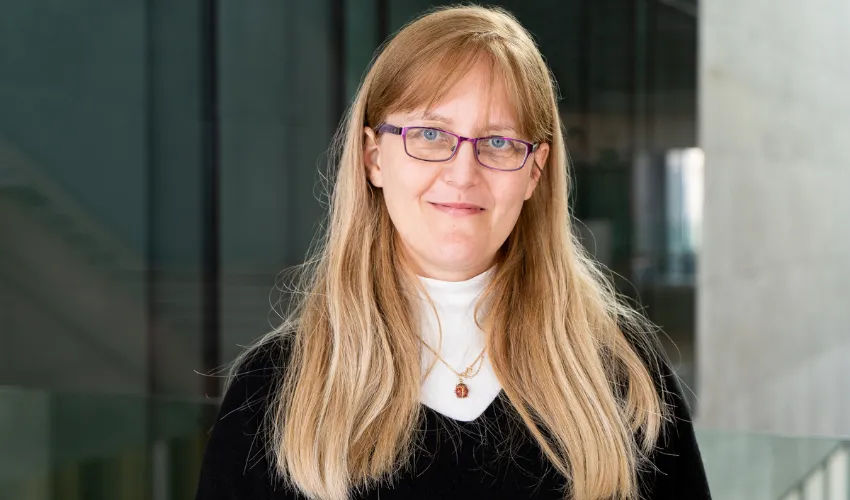
Computer Science to Aid Oncology Research
Francesca Buffa, of the Department of Computing Sciences, is in the international research group on biomarkers in patients with glioblastoma, one of the most aggressive brain tumors. The group, which also includes Oxford University's Department of Oncology, Azienda Ospedaliero Universitaria Pisana (AOUP) and the Fondazione Pisana per la Scienza, has already produced research evidence of great interest.
The results achieved so far encouraged the research group to apply for the 2022 call for entries by Fondazione Giovanni Celeghin with a project called "Impact of circulating biomarkers in glioblastoma patients" which went on to win a €92,000 grant.
Glioblastoma (GBM) is the most aggressive primary brain tumor in adults and has a poor prognosis. In recent years, new treatment strategies have been proposed, however radio-chemotherapy (RT-CT) with temozolomide is still the standard treatment, and has been so since 2005. One of the limitations in the development of novel therapies for these tumors, is the paucity of biomarkers that are able to inform the development and adoption of new drugs.
A root cause of this is the difficulty in obtaining and analyzing tumor tissue in patients with GBM. The study of circulating biomarkers in these patients, could help to overtake these limitations, and develop biomarkers for prognosis and prediction of therapeutic response. On the other hand, integrated analysis of these biomarkers is challenging.
This study aims to develop and evaluate experimental and computational strategies to study GBM. Thanks to a collaboration between research centers in Italy, coordinated by Dr Francesco Pasqualetti, based at Pisa University Hospital, and Dr Chiara Maria Mazzanti at Fondazione Pisana per la Scienza, it will be possible to extract circulating microvesicles, called exosomes, from blood samples of patients with GBM. Exosomes contain RNA molecules, that change in type and abundance depending on the clinical and biological characteristics of the tumor that produced them. Thanks to the expertise in computational biology, genomics and transcriptomics of Prof Buffa's research labs, at Bocconi University (computing sciences) and University of Oxford (genomics and transcriptomics), it will be feasible to study the association between RNA in circulating exosomes and in tumors, and the mechanisms generating resistance to therapy in GBM patients. This will enable to stratify patients, and move towards individualized treatments.
The data generated by this project will enable the development of trial designs testing different therapeutic approaches, and collecting biomarkers prior, during and post-therapy so that mechanisms of resistance to radiation and chemotherapy can be identified before to proceed with post-surgery treatments. Once we can determine the mechanisms of resistance to radio-chemotherapy treatments for each patient, we will be able to develop molecules capable of synergizing with ionizing radiation (which is currently the primary weapon in the treatment of glioblastomas).